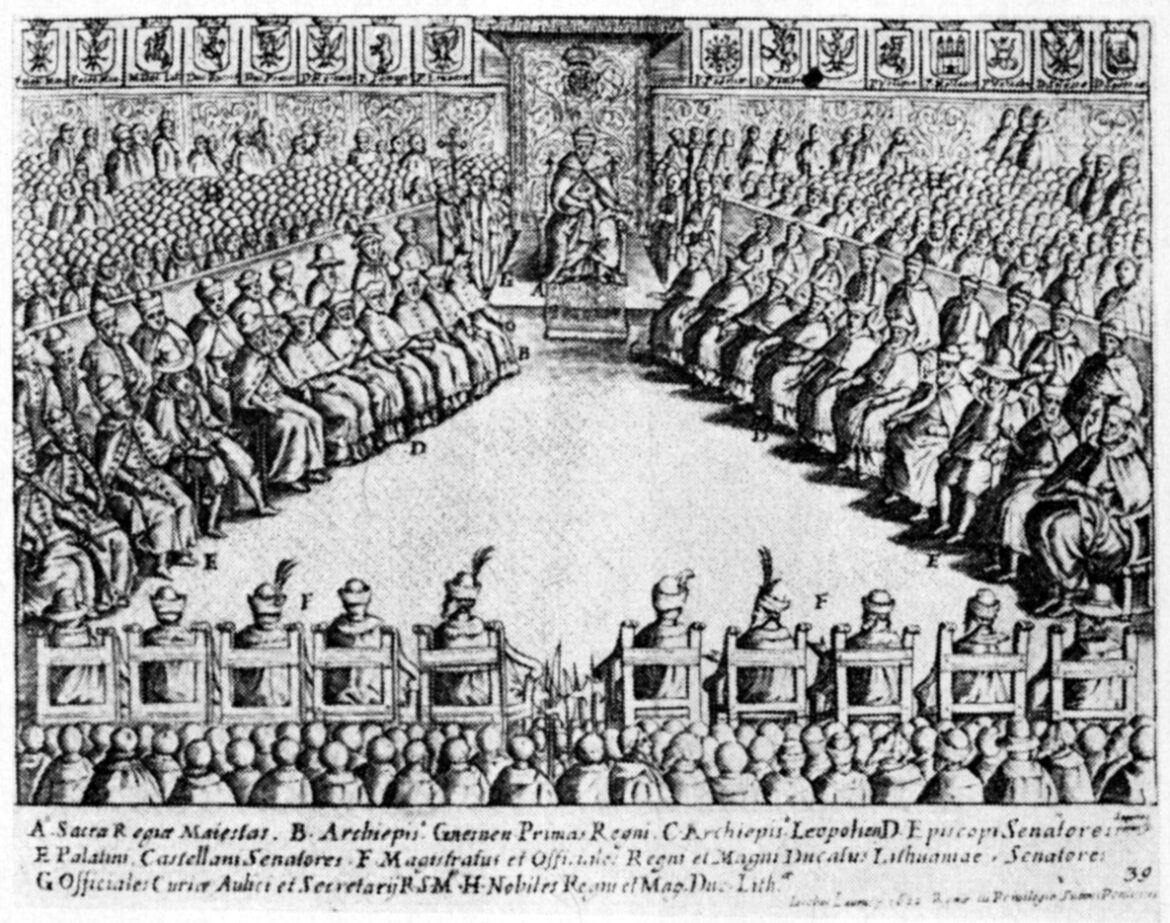In 1652, deputy Władysław Siciński caused the first break-off of the Sejm in Poland. Although each member of the Sejm was entitled to a liberum veto, this constitutional principle had not been used until then. Later, its use became a common practice, which led to the decay of Polish parliamentarism and, consequently, to the collapse of the country in the second half of the 18th century.
At the end of the 15th century, Poland saw the development of a system of noble democracy, which enjoyed its heyday in the following century. Its key element was the parliamentary system. The Polish Sejm consisted of the Chamber of Deputies (representatives of the nobility elected at land assemblies) and the Senate (the most important officials and senior clergy). The Sejm was convened once every two years and its sessions lasted six weeks. Its powers included taxation, determining the size of the army, and deciding on war and peace. The Sejm’s resolutions were passed unanimously and were called Sejm constitutions. In cases of emergency, the king had the right to convene a so-called extra-ordinationary Sejm, which lasted for a fortnight. However, the monarch could only convene it for tax and military matters.
During the 1652 Sejm, in the reign of King John Casimir a situation occurred which contributed significantly to the anarchisation of political life in Poland. As the six-week parliamentary work period was coming to an end, it was proposed that it be extended for another day. This was refused by one of the members of the Sejm, Władysław Siciński, who then left the session. As a result, the Sejm ended without passing any resolutions. This gave rise to the “Liberum veto”, or in practice the right to break off the Sejm’s proceedings.
This principle was increasingly used by deputies in later years by the neighbouring states, especially Russia and Prussia, which paid representatives of the nobility to break off the Sejm at the appropriate moment. In this way, both powers were able to intervene effectively in internal Polish affairs. During the reign of King Augustus III Sas (1733-1763), almost all sessions were broken off, except for the coronation Sejm.
The liberum veto was completely abolished by the 3rd of May Constitution which permanently introduced majority rule.





